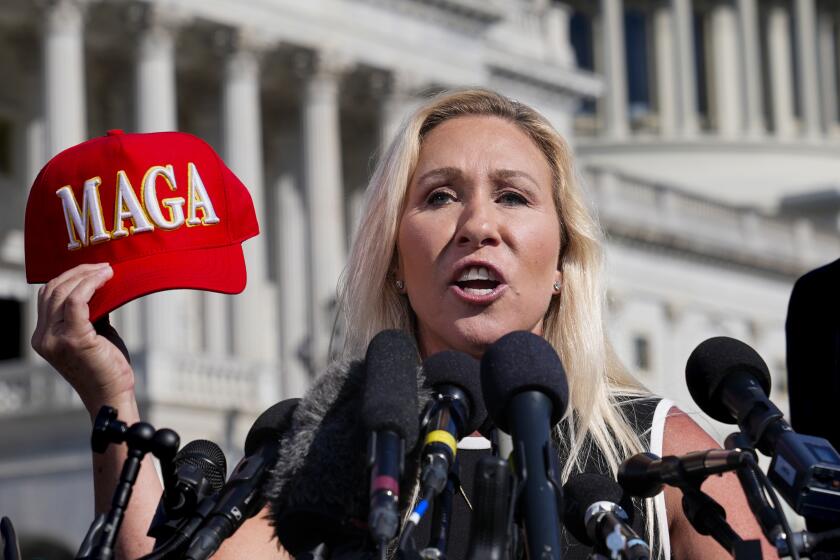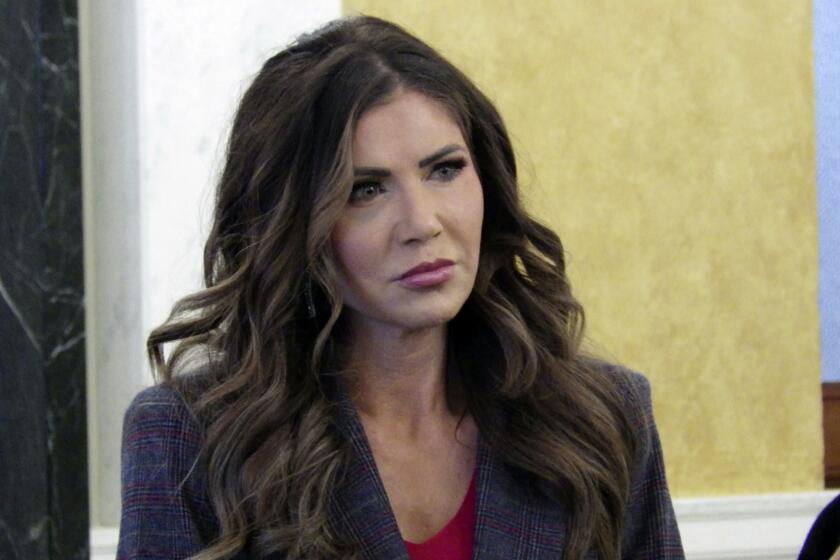High Court Won’t Review Scalia’s Recusal Decision
Chief Justice William H. Rehnquist, responding to questions from two U.S. senators about a duck hunting trip involving Justice Antonin Scalia and Vice President Dick Cheney, said Monday that it is up to each justice, not the court as a whole, to decide whether to withdraw from a pending case.
“There is no formal procedure for court review of the decision of a justice in an individual case,” Rehnquist said in a letter to Democratic Sens. Patrick J. Leahy of Vermont and Joe Lieberman of Connecticut. “That is so because it has long been settled that each justice must decide such a question for himself.”
He added that it was “ill-considered” for the senators to suggest that Scalia step aside in the pending case involving Cheney and the White House task force he headed to develop the Bush administration’s energy policy. Cheney has refused to disclose records of the task force’s activities.
Last week, Leahy and Lieberman wrote Rehnquist asking whether the high court had “procedures and rules” for determining when a justice should step aside and a policy for “review of a justice’s unilateral decision to decline to recuse himself.”
They referred to the duck hunting trip that Scalia took with Cheney on Jan. 5, three weeks after the high court agreed to hear Cheney’s appeal of a judge’s order that he produce documents about meetings of the energy policy task force. The two flew on a small jet to Morgan City, La., and stayed at a private hunting camp.
The court is scheduled to hear Cheney’s case in April. It sets the stage for a potentially broad ruling on White House secrecy.
The case began when two groups, the Sierra Club and Judicial Watch, sought to find out how much of a role oil companies or other corporate interests had played in deliberations that led to the administration’s energy policy.
Federal law says a judge or justice “shall disqualify himself in any proceeding in which his impartiality might be questioned,” but Scalia said his hunting trip should not disqualify him from deciding the Cheney case.
“I do not think my impartiality could reasonably be questioned,” he said in a written response to an inquiry.
The two senators took issue with that view. “When a sitting judge, poised to hear a case involving a particular litigant, goes on vacation with that litigant, reasonable people will question whether that judge can be a fair and impartial adjudicator of that man’s case,” they wrote.
In his reply, the chief justice said the senators’ advice was not especially welcome. “Anyone at all is free to criticize the action of a justice -- as to recusal or as to the merits -- after the case has been decided. But I think that any suggestion by you or Senator Lieberman as to why a justice should recuse himself in a pending case is ill-considered,” he wrote.
Rehnquist sent identical letters to Leahy and Lieberman and sent copies to the justices.
Leahy, in a response to Rehnquist’s letter, said it would be better if this issue were aired by the justices before the case is heard.
“Because Supreme Court decisions cannot be reviewed, waiting until after a case is decided needlessly risks an irreversible, tainted result and a loss of public confidence in our nation’s highest court,” Leahy said.
More to Read
Get the L.A. Times Politics newsletter
Deeply reported insights into legislation, politics and policy from Sacramento, Washington and beyond. In your inbox three times per week.
You may occasionally receive promotional content from the Los Angeles Times.







